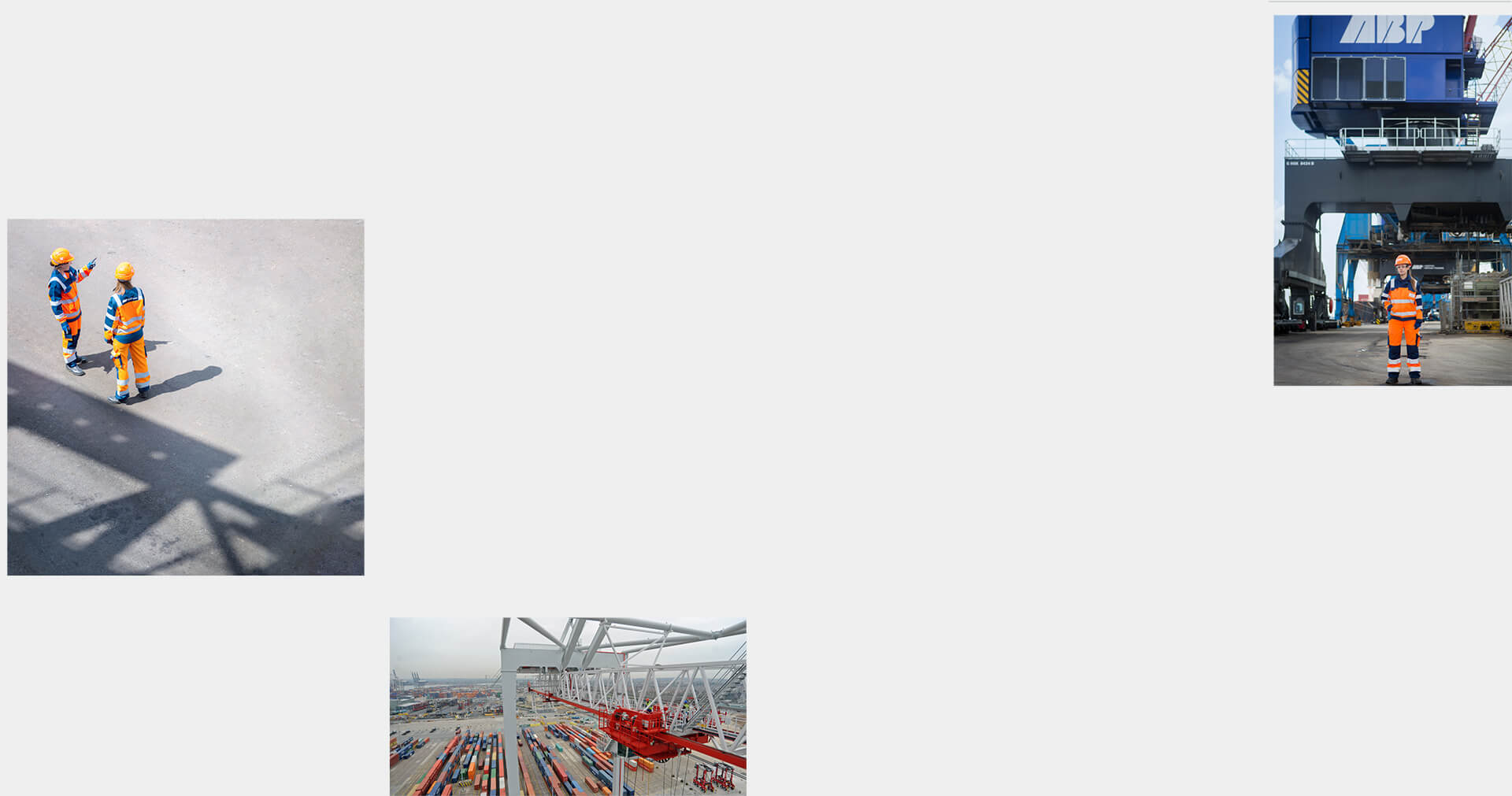Annual Review 2019
Locations & Services
21 Ports
ABP is the UK’s leading port operator with a network of 21 ports across Britain handling around one quarter of the nation’s seaborne trade, contributing £7.5 billion to the economy every year and supporting 119,000 jobs. ABP also operates one of the UK’s busiest rail terminals at Hams Hall in the Midlands.
Discover more at abports.co.uk
- Ayr
- Barrow
- Barry
- Cardiff
- Fleetwood
- Garston
- Goole
- Grimsby
- Hams Hall Freight Terminal
- Hull
- Immingham
- Ipswich
- King’s Lynn
- Lowestoft
- Newport
- Port Talbot
- Plymouth
- Southampton
- Swansea
- Silloth
- Teignmouth
- Troon
Barrow
- Bulk Energy
- Construction
- Forest Products
- Liquid Bulks
- Offshore Wind
- Project Cargo
- Rail Freight
Silloth
- Agribulks
- Forest Products
- Liquid Bulks
Grimsby
- Agribulks
- Automotive
- Bulk Energy
- Construction
- Forest Products
- Offshore Wind
- Project Cargo
- Ro-Ro Ferries
- Steel and other metals
Troon
- Construction
- Forest Products
Southampton
- Agribulks
- Automotive
- Bulk Energy
- Construction
- Containers
- Cruise
- Liquid Bulks
- Offshore Wind
- Rail Freight
- Ro-Ro and Ferries
- Steel and other metals
Hams Hall Freight Terminal
- Containers
- Project Cargo
Ipswich
- Agribulks
- Bulk Energy
- Construction
- Forest Products
- Project Cargo
- Rail Freight
- Steel and other metals
Teignmouth
- Agribulks
- Construction
Garston
- Agribulks
- Construction
- Rail Freight
- Steel and other metals
Swansea
- Agribulks
- Bulk Energy
- Construction
- Cruise
- Forest Products
- Offshore Wind
- Project Cargo
- Steel and other metals
Barry
- Bulk Energy
- Liquid Bulks
- Rail Freight
- Steel and other metals
Goole
- Agribulks
- Bulk Energy
- Construction
- Forest Products
- Liquid Bulks
- Project Cargo
- Rail Freight
- Steel and other metals
King’s Lynn
- Agribulks
- Bulk Energy
- Construction
- Forest Products
- Project Cargo
- Steel and other metals
Newport
- Agribulks
- Bulk Energy
- Construction
- Containers
- Forest Products
- Project Cargo
- Rail Freight
- Ro-Ro and Ferries
- Steel and other metals
Hull
- Agribulks
- Bulk Energy
- Construction
- Containers
- Cruise
- Forest Products
- Liquid Bulks
- Offshore Wind
- Ro-Ro Ferries
- Steel and other metals
Ayr
- Agribulks
- Bulk Energy
- Construction
- Cruise
- Forest Products
Lowestoft
- Agribulks
- Liquid Bulks
- Offshore Wind
- Project Cargo
Plymouth
- Cruise
- Project Cargo
- Ro-Ro and Ferries
Fleetwood
- Agribulks
- Construction
- Project Cargo
Cardiff
- Bulk Energy
- Construction
- Containers
- Cruise
- Forest Products
- Liquid Bulks
- Rail Freight
- Project Cargo
- Steel and other metals
Port Talbot
- Bulk Energy
- Forest Products
- Offshore Wind
- Project Cargo
- Steel and other metals
Immingham
- Agribulks
- Automotive
- Bulk Energy
- Construction
- Containers
- Liquid Bulks
- Offshore Wind
- Project Cargo
- Rail Freight
- Ro-Ro Ferries
- Steel and other metals
From the chief executive officer
focusing on growth
It is my great pleasure to present my first Annual Review as Chief Executive Officer of Associated British Ports. Over the past 12 months there have been many developments across ABP. We have continued to invest in our people, build brand new facilities and acquire the latest equipment to safely and sustainably deliver the best possible service for our customers. We have worked closely with the Government to chart a safe course through Brexit, offering our customers reliable and resilient supply chain solutions. Across our 21 ports we have reached out to support local communities and good causes. We have continued to fulfil our mission: Keeping Britain Trading.
View our Executive Teamon growth
Chief Executive Officer
Building on ABP’S strengths and fulfilling the company’s huge potential requires a continued focus on safety and customers.
Our focus
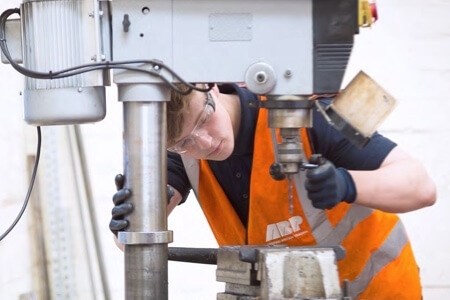
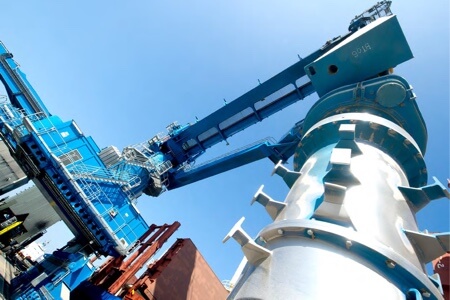
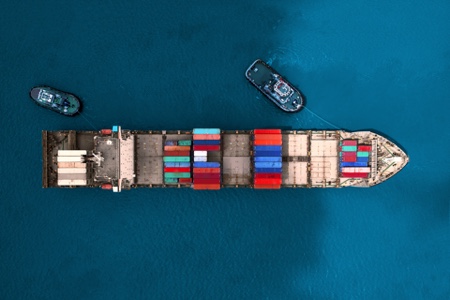
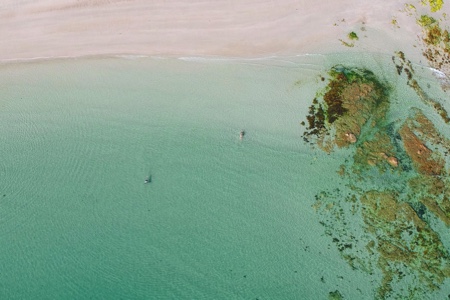

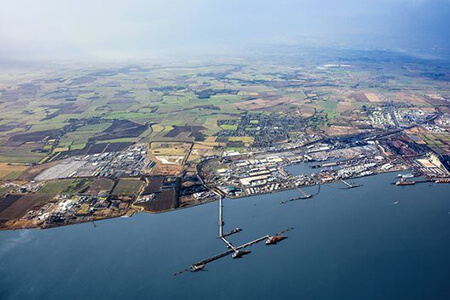
Keeping our
people safe
Keeping our people safe and promoting the wellbeing of our colleagues remains our number one priority, a position reinforced by the tragic death of our colleague working at UKD in February. Throughout the year, we have continued to progress behavioural safety training across the business through our Beyond Zero programme.
We have also introduced new systems to make it easier to report safety or potential safety incidents, as well as other compliance related issues. Our whistleblowing Hotline has been in operation and has been constantly monitored for more than 15 years.
It's OK
During Mental Health Awareness Week in May, colleagues launched an ‘It’s OK not to be OK’ campaign.
60
Apprentices going through programmes.
Serving our
customers
Over the past 12 months ABP has continued to invest in new infrastructure, facilities and equipment to help our customers’ businesses grow, bringing ABP’s total investment since 2016 to £250 million. This includes £50 million of investment in Southampton, the UK’s number one export port, to serve the automotive and cruise industries. The upgrade to the port’s Ocean Terminal will help maintain Southampton’s status as
Europe’s leading cruise turnaround port, whilst the completion of our eighth multi-deck car storage facility later this year will keep Southampton in pole position for automotive. Stage one of the project was completed in May providing storage space for an additional 1,000 vehicles, and was marked in an event attended by His Excellency Mr Robert Wood Johnson, United States Ambassador to the UK.
£250m
ABP’s total investment since 2016.
£50m
Of investment in Southampton, the UK’s number one export port.
Driving jobs and
investment
ABP supports 119,000 jobs and contributes £7.5 billion to the UK economy every year, handling around £150 billion of trade. Our ports are an essential part of the supply chain in key industries throughout the country. 11,700 jobs in car manufacturing in the West Midlands alone are supported by the Port of Southampton, the UK’s number one automotive and export port.
Elsewhere around ABP’s ports we are looking to bring forward projects, both large and small, which promise transformational benefits for the economy both at local and national level.
119k
Jobs supported.
£7.5b
Contribution to the UK economy every year.
Protecting our
environment
Across all our locations, we are passionate about protecting the environment and working more sustainably. Our absolute carbon footprint has decreased more than 21% since 2014, with some ports achieving reduction rates in excess of 40%. Across the group, ABP continues to deliver major investment in solar and wind generation to maximise the use of renewables for powering our business.
Last year, our installed capacity for renewable generation reached 18.3MWp (Megawatt Peak) generating 16.7GWh during the year, enough to power around 4,300 average UK homes for a year. It is pleasing to note that we used around 10GWh of this power for our own and our tenants’ operations and provided around 6.7GWh of green energy to the national grid, equivalent to the total electricity requirement for all of our short sea operations for a full year.
21%
Decrease in our carbon footprint.
16.7GWh
Generated renewable energy.
Working for
communities and charity
This year, we have maintained our great work with local communities and worthy causes. Amongst many highlights, our team on the Humber has sponsored the Humber Coastal Half Marathon for the third year in a row. The race takes place in September and is growing in popularity with 2,500 runners expected this year.
Healthy activities like running were also encouraged by other teams within ABP, with our South Wales ports once again sponsoring the ABP Newport Wales Marathon and 5K and continued sponsorship of the ABP Southampton Marathon, with additional donations from the Southampton team supporting a range of worthy local causes.
£12,500
Raised for Southampton’s chosen charity of the year for 2019.
£180,000
Over £180,000 Raised for Macmillan Cancer Support at the annual Houses of Parliament Tug of War event.
Think
Humber
Since 2017, the number of shipping services connecting Hull and Immingham to ports on the Continent has increased by over 30% with new services from Amsterdam and Ghent plus the introduction of deep-sea feeder services into the Port of Hull.
A comparative analysis of short sea import and export routes to and from the UK conducted by the University of Hull Logistics Institute has demonstrated the significant time, distance and environmental benefits which can be achieved by choosing the ports of Hull and Immingham instead of the Port of Dover, as well as other ports located on the East Coast.
100,000t
Moving 10% of cargo from the Port of Dover to the Humber could save in the region of 100,000 tonnes of CO2e every year when travelling to locations within the Central East-West Corridor. Read the study here.
highlights
Overview 2018/19
Discover some of our achievements and highlights throughout the year or download the full highlights below.
Download full highlightsPdf 5.6mb2018/19 in numbers
